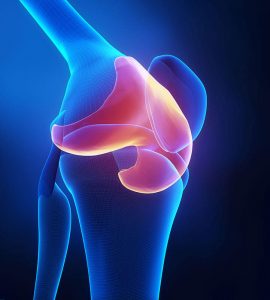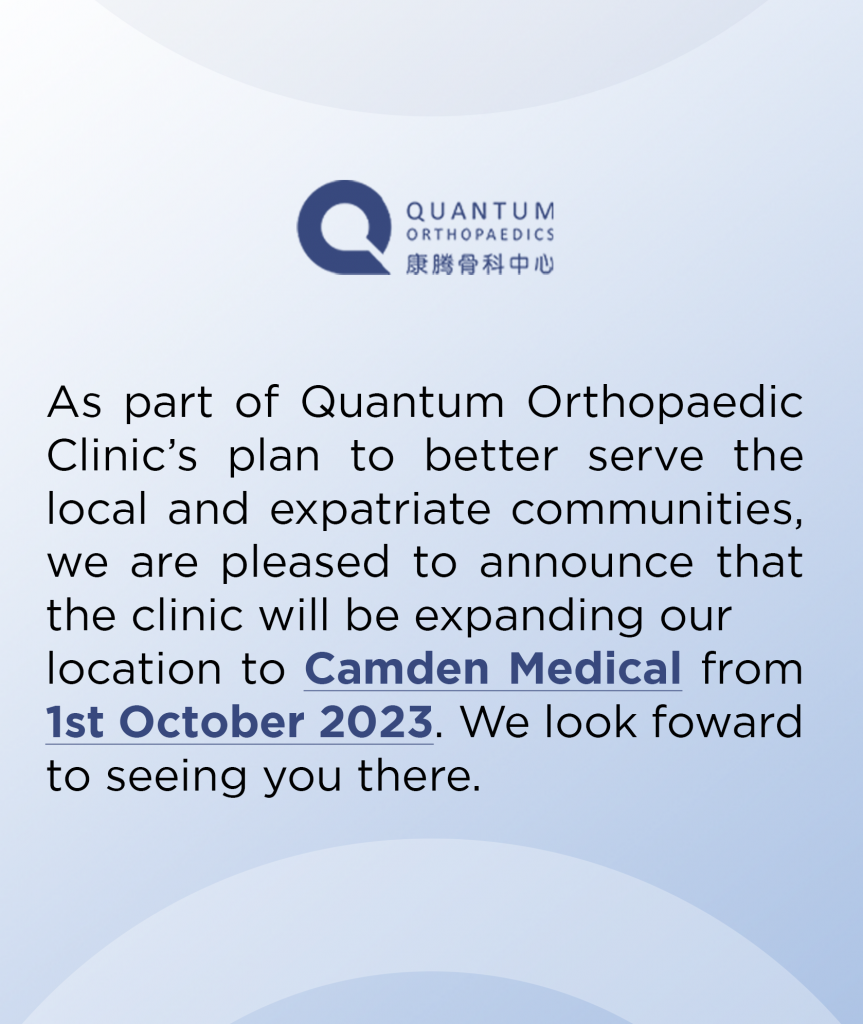The shoulder is considered as the most mobile joint in the human body. Its wide range of movement is enabled by the rotator cuff, which refers to a group of muscles and tendons that keep the upper arm bone’s head in place in the shoulder socket. Any pain in or around the shoulder joint, rotator cuff and nearby tissue or muscle is generally known as shoulder pain.
One of the most common causes of shoulder pain in Singapore is shoulder impingement. When you lift your arm, the rotator cuff tendon passes through a narrow space at the top of your shoulder, also known as the subacromial space. Shoulder impingement occurs when the tendon rubs or catches on the bone at the top of this space called the acromion.

What are the Symptoms of Shoulder Impingement?
Some of the common symptoms of shoulder impingement are tenderness and swelling in the top and outer side of the shoulder. Patients may also experience pain when lifting their arms or when putting their arms down from a higher position. When sleeping at night, they can also go through some pain and aching that can affect their sleep. Weakness in the arms is another symptom of shoulder impingement as well.
Don’t ignore the pain and swelling in your shoulder.
Get an accurate assessment by our orthopaedic specialist at 8028 4572.
What Are the Causes of Shoulder Impingement?
The leading cause of shoulder impingement is overuse as the shoulder regularly performs repetitive movements to accomplish basic everyday tasks. This can result in the swelling of tendons in the shoulder. Additionally, age and injuries like dislocated shoulders contribute to shoulder impingement.
Who Is at Risk of Having Shoulder Impingement?
Individuals who engage in sports like tennis, baseball, and swimming wherein repetitive motions are done are the most vulnerable to shoulder impingement. Additionally, those who are 50 and older have a higher chance of developing this condition.
How Is It Diagnosed?
Shoulder impingement is primarily diagnosed via a physical exam. Patients will also be asked if they have engaged in activities that require repetitive movements, as well as what medications they take when they experience pain. Afterwards, an X-ray or magnetic resonance imaging (MRI) test may be conducted. An X-ray can check for possible bone spurs and other abnormalities in the outline of the bone that can result in shoulder impingement. On the other hand, an MRI can reveal if there are tears present in the rotator cuff tendons and if the bursa is inflamed.
Get a prompt diagnosis to get started on treatment as early as possible.
Consult Dr James Tan at 8028 4572 today.
How Is Shoulder Impingement Treated?
Shoulder pain treatments in Singapore can either be surgical or non-surgical depending on the symptoms present.
Non-Surgical Treatments
Common non-surgical treatments for shoulder impingement include:
- Rest: Avoiding or limiting repetitive movement activities is an initial treatment for shoulder impingement.
- Medication: Prescription anti-inflammatory medications like ibuprofen, aspirin, and naproxen are one way to treat the symptoms of shoulder impingement.
- Physiotherapy: Physiotherapy will involve specific stretches and exercises that will condition and strengthen the patient’s shoulder to reduce pain and weakness.
Steroid injection: To address inflammation, your Singapore orthopaedic surgeon may prescribe an anti-inflammatory injection. When injected into the affected joint, this can provide quick relief for inflammation. There are cases where steroid injections only temporarily address shoulder impingement, but there are instances where they may address the problem in the long term.
At Quantum Orthopaedics, we offer a wide range of non-surgical and surgical treatments treat shoulder impingement.
Surgical Treatments
If non-surgical options fail to treat patients with shoulder impingement, their doctor may suggest arthroscopy. Arthroscopy is a minimally invasive surgery that is the most commonly used to address shoulder impingement. This involves creating a small incision on the shoulder joint through which a thin instrument equipped with a camera will be inserted. This instrument helps the doctor better visualise the inside of the joint for a more accurate diagnosis and provide treatment. For treatment, another incision may be made through which surgical instruments are inserted and the space around the rotator cuff tendon is widened.
Recovery after Treatment
After undergoing shoulder injury treatment in Singapore, patients can expect to fully recover after 3–6 months. On the other hand, patients who had a more severe form of shoulder injury or impingement may take longer to fully heal.
With in-depth experience treating shoulder injuries, Dr James Tan offers comprehensive treatments for lasting relief.
FAQs
Will shoulder impingement go away?
Shoulder impingement does not fully go away on its own, but with lifestyle adjustments and targeted treatment, symptoms can be managed.
Can shoulder impingement turn into a tear?
Shoulder impingement, if not treated properly, can cause the rotator cuff tendons and bursa to become inflamed. This may lead to the thinning and tearing of the rotator cuff.
What happens if shoulder impingement is left untreated?
If not treated early and correctly, individuals may experience more pain, weakness of the shoulder, and have a limited range of movement.
Can I lift weights with shoulder impingement?
When diagnosed with shoulder impingement, one should stop lifting weights to allow the tendons to heal.
How do I sleep with impinged shoulders?
Patients with shoulder impingement should sleep on their backs, as this relieves pressure on the shoulders.
Why is shoulder impingement worse at night?
Factors such as laying down and gravity cause the rotator cuff to stretch and pull, which can worsen shoulder impingement at night.





